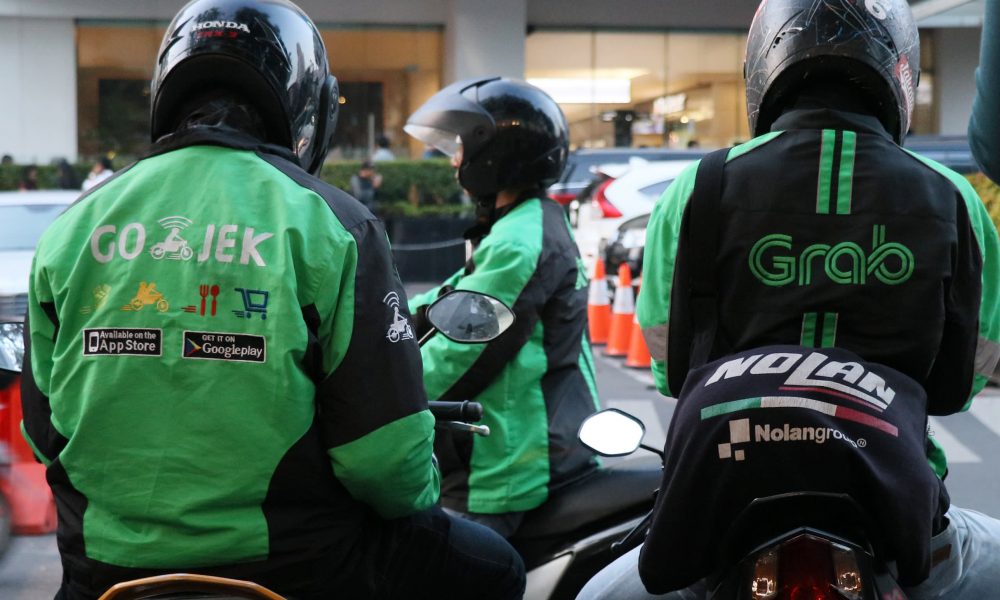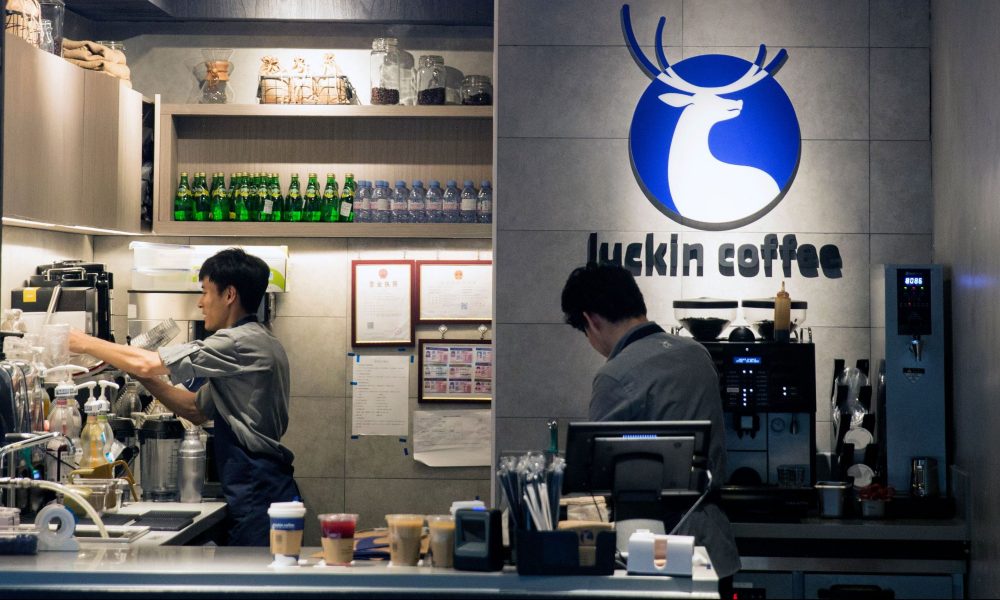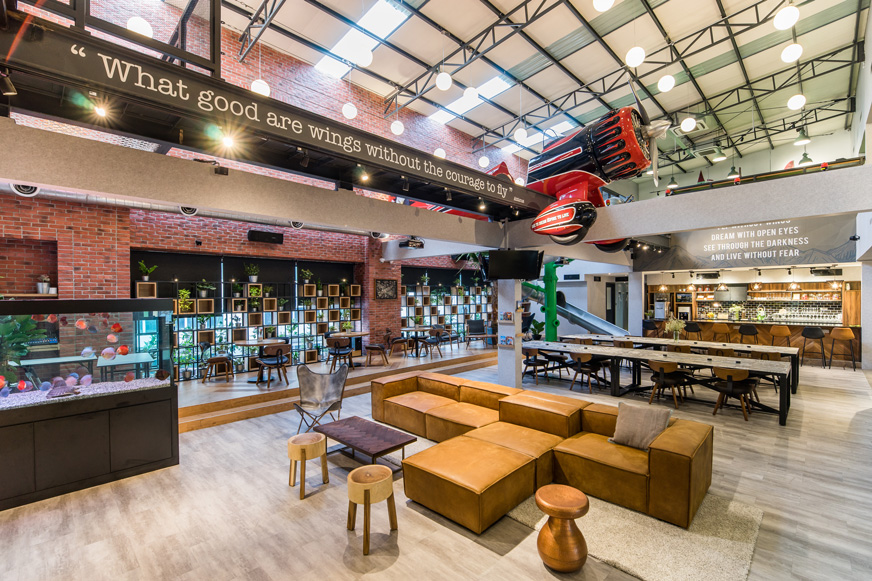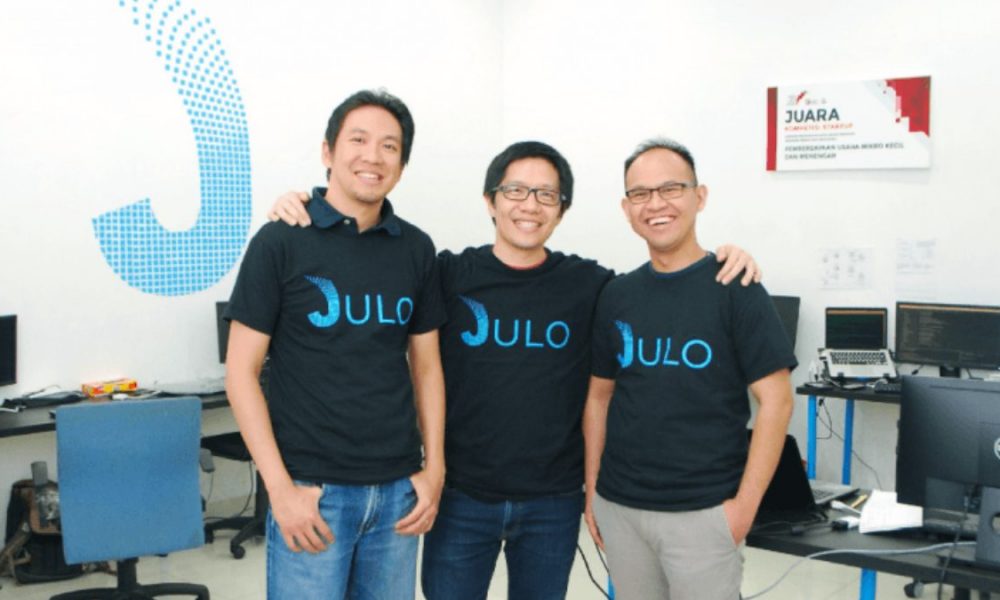Category: Startup
Grab vs. Go-Jek: The Battle for Ride-hailing Market Domination
The fight for domination in the ride-hailing market is heating up as ride-hailing giants Singapore’s Grab and Indonesia’s Go-Jek are forging new financial services alliance.
With Go-Jek’s Singapore entry closing in, the Indonesian ride-hailing giant announced a tie-up with DBS Bank for regional payment.
Shortly later, Grab revealed a strategic alliance with United Overseas Bank (UOB) Ltd to become its strategic credit card partner across five Southeast Asian countries.
It’s a battle to control user’s wallets.
Go-Jek’s Regional Strategic Partnership with DBS
For Go-Jek, whose backers include Tencent Holdings, Temasek, and Google, the deal came at a time ahead of its expansion into Singapore.
Under the partnership, Go-Jek will work with Singapore-headquartered DBS Bank on payment service offerings in the city-state, which will also be later extended to other markets in Southeast Asia.
The ride-hailing startup is set to launch its beta ride-hailing app in Singapore in the coming weeks where DBS customers in Singapore will get to enjoy certain privileges upon launch.
However, both DBS and Go-Jek did not elaborate when such services will be rolled out.
“We are very much looking forward to the launch of our beta ride-hailing service within the coming weeks,” said Go-Jek president Andre Soelistyo.
“We know that people are desperate for more choice in the sector and we believe we can satisfy this demand. The response from the driver community since we opened pre-registration has been overwhelming and we are confident that by working with DBS, we will see the same level of excitement from consumers too,” added Soelistyo.
In October, Go-Jek launched a Singapore pre-registration portal for drivers in the city-state.
“As Singapore’s leader in payments with over four million debit/credit cards in circulation and DBS PayLah! being the nation’s most popular mobile wallet, we are committed to making payments simple, seamless and invisible for our customers,” said Tan Su Shan, the group head of consumer banking and wealth management at DBS.
“In doing so we are stepping up to partner with like-minded companies like Go-Jek, one of Southeast Asia’s most iconic technology companies, to build inclusive digital ecosystems for our customers,” Tan added.
Grab, UOB Forge Region-wide Alliance
In a similar move, United Overseas Bank (UOB) is also working with Grab to deliver financial services to the ride-hailing startup’s growing digital user base in Southeast Asia.
The partnership will allow Grab to offer a number of the bank’s payment solutions directly from its app, accelerating the bank’s efforts to meet the region’s fast-growing customer need for mobile-first and mobile-only.
The bank is working with Grab to embed features of its upcoming digital bank within Grab’s mobile app, so users can access banking services quickly and conveniently. Customers will also enjoy privileges when paying for Grab services using UOB cards.
Besides, both firms will explore launching co-brand credit cards in the region, as well as introducing a new way to allow users to top up their GrabPay e-wallets directly from their UOB accounts.
UOB will also explore support for Grab in a number of other areas, including fleet financing, regional and centralized treasury management solutions and workplace banking services.
But above the deal, the partnership also entails an undisclosed investment from UOB into the ride-hailing unicorn.
“Yes, UOB has made a strategic investment into Grab as part of the deal, cementing Grab’s position as the go-to partner for leading organizations to collaborate with as they serve ASEAN’s growing number of consumers and small businesses. We plan to roll out the features with UOB in 2019. Specific details will be shared at a later stage,” said a Grab spokesperson.
Prior to this investment, Grab had raised a total of US$2.75 billion in an ongoing $3-billion Series H round.
Domination for Ride-Hailing Market
On October 29, Go-Jek fired the first shot in the battle when it opened a portal for drivers in Singapore to pre-register on its platform.
The company also announced six months ago that S$671 million would be invested in its bid to expand into markets in Southeast Asia, namely Vietnam, Singapore, Thailand, and the Philippines within 2018.
Go-Jek was able to raise funds amounting to S$2.074 billion from investors such as China’s Tencent and Meituan Dianping, as well as Google, Temasek, and others.
With this recent collaboration, clients of DBS will have privileges in payment services, not only in Singapore but throughout Southeast Asia.
In the same way, Grab users who pay for services with their UOB cards will also enjoy special perks.
While the battle between the two ride-hailing giants is heating up, it’s still too early to say who will end up victorious in the end.
But if there’s any conclusion to draw, that is the winners through these initiatives are none other than the consumers of both Grab and Go-Jek as they are able to enjoy a fully digital and seamless banking and payments experience.
First Coffee Unicorn of China: Luckin Coffee Raises US$200 million to take on Starbucks
China’s Luckin Coffee, a coffee franchise rivaling Starbucks had just closed a US$200 million Series A round from Singapore’s sovereign wealth fund GIC, China’s Legend Capital, Joy Capital, and Centurium Capital.
The funding round values Luckin at US$1 billion which makes it the newest Unicorn in China.
However, the scale of the capital and the fact that the round is labeled a Series A has been confusing because the company basically expanded overnight.
Founded by Jenny Qian, the former chief operating officer in Car Inc, Luckin Coffee started late last year.
Luckin Coffee has rapidly grown using a mass-store model and the company was soon found everywhere in China. It entered the market vigorously and expanded across China’s first and second-tier cities.
But in less than nine months after its launch, Luckin Coffee has opened 525 outlets across China’s major cities, in addition to offering on-demand delivery services in partnership with S.F. Express. Luckin Coffee will deliver for orders over RMB35 (US$5.30) within 30 minutes.
Besides, the coffee franchise selling point was clear, it positioned itself similarly to Starbucks. Both highlighting their freshly brewed coffee to be of high Arabica standards and made with professional blending.
Pricing-wise, Luckin Coffee is reasonably set between 20 to 30 yuan (about US$3 to US$5) which separates it from fast food coffees at McCafe or KFC that is 10 to 20 yuan (about US$2 or US$3), while being more attractive than Starbucks which sells at 30 to 40 yuan (about US$5 to US$6).
If that’s not enough to prove that it is a rival of Starbucks, the Chinese coffee chain has also opened fire on Starbucks, accusing the American coffee giant of engaging in monopolistic behavior and creating an unfair domestic trade market.
An act that Starbuck has called out as a publicity stunt.
Then again, Luckin is not a Starbucks copycat. The startup adds a technological touch making its coffee-shop model revolving around an app.
Luckin customers have to download the app to order and pay for their coffee. They do not accept cash and payments can only be made using WeChat or Luckin’s own coffee wallet. This breaks it out of the traditional retail mold, fitting it in with new retail trends like Alibaba and Tencent which partners with supermarket and convenience stores on mobile payments.
Similar to many other Chinese Internet-based startups, the startup has also been spending massively on cash discounts and promotions to gain market share. First-time customers can get a free cup of coffee, while their referrals can also get another free cup of coffee.
Despite the low prices and rising expansion project, the question is – how does the company justify its valuation and can it take on the coffee giant Starbucks?
Jeff Towson, an investment lecturer at Peking University in Beijing told Quartz, “Luckin Coffee can easily worth US$1 billion if it can execute on the business — but that’s a big if.”
He explains that a large part of Starbucks’ success is not just personalize marketing and coffee. China is Starbucks second largest market after the United States with more than 3300 stores in operation.
The coffee tycoon’s real leverage is with real estates whereby many of its stores are located strategically in expensive, high traffic locations that rivals cannot afford.
However, the startup uses app to draw people to less bustling locations that are cheaper to rent. This may be the solution to overcome the real estate power of the coffee tycoon.
Moving forward, Luckin Coffee plans to use the newly raised funds for product research, IT platform development, and business expansion.
GrowPal wins G-Startup Indonesia 2017 for aquaculture investment platform
Global startup competition G-Startup Worldwide recently announced GrowPal, an aquaculture investment platform as the winner of G-Startup Indonesia 2017.
Foreign language e-learning platform Squline and logistics aggregator platform Shipper has won the second and third place respectively.
GrowPal is a P2P lending platform that helps freshwater fishermen to raise funding for their businesses, in addition to shipping these products to countries like the United States, France, and Russia through partnerships with export companies.
Founded by Paundra, the startup is currently working with fishermen in Pacitan, Situbondo, Karimun Jawa Island, and Makassar. It monetizes through taking 15 percent of every investment, claiming to be profitable with US$1.5 million of Gross Merchandise Volume (GMV).
As the winner, GrowPal has won an investment cheque worth US$150,000 from GWC Innovator Fund and Kejora Ventures, as well as represent Indonesia at the G-Startup Worldwide final round in Silicon Valley.
GrowPal will go up against representatives from other countries, including Tel Aviv winner Donde Fashion, an AI-powered visual search for eCommerce and Beijing winner Zion China, a startup researching the kinetics of glucose metabolic.
CO3, Probably South East Asia’s Coolest Office Launched in Malaysia
Malaysia based co-working space startup CO3 Social Office officially launched their first office location in Puchong, Malaysia today. The opening of the Puchong office marks the completion of the first out of five offices the company had planned.
Early this year, the startup revealed their ideology in Connexion at Nexus, Bangsar South. During the 1,500 people event, the team from CO3 presented their plan to deliver the “coolest office in Malaysia” by June 2017. In the same event, they had also announced the plan to open 5 offices in 12 months.
“We have said it, now we have done it”, said Yong Chen Hui, Founder & CEO of CO3 Social Office. “The journey wasn’t easy but our aspiration took us here.”

“We have said it, now we have done it”, said Yong, CEO of CO3
In celebration of the first workspace opening, the team organised a weeklong celebration including two housewarmings, a grand opening ceremony, and an exclusive social gathering with Bruneian artist Goh Kiat Chun or better known as Wu Chun. Now a full-time entrepreneur, the ex-singer Wu Chun is the non-executive director of the newly launched co-working space. As part of the weeklong celebration, the 44-year-old entrepreneur shared his rich experiences in entrepreneurship with a group of young influencers.
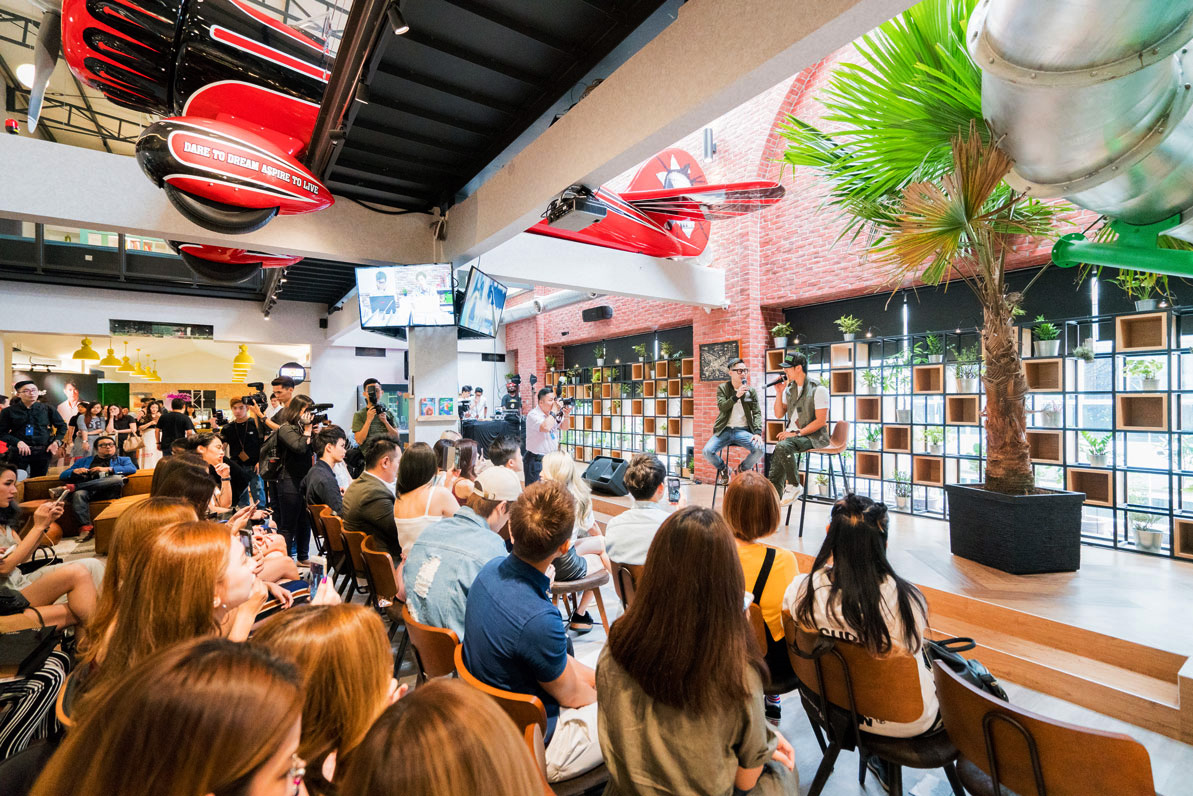
Wu Zun, one of CO3 co-founders having a sharing session with Malaysia's top social media influencers
When asked about the differentiating factors that set CO3 apart from the existing co-working offices in the region, Yong brought up an interesting point. The “heartware” he said. He explained that besides the hardware (the facilities) and the software (the mentor supports and business networks) which almost every co-working office provides, CO3 social office is promoting an intangible spirit called the “heartware”.
It’s made up of 3 key elements namely freedom, dignity, and trust. “We allow ideas to travel freely within this space, we promote the concept of same rank where everyone has their own space, and we want to build trust within the members,” he added.

The spirit of CO3 is to allow free travel of ideas between the members
Further embodying the spirit of “heartware”, this co-working space allows flexible leasing for as short as a month and an adopted honor system for the food and beverages in the workspace. Additionally, all the net proceeds from the honor system will be donated to charitable causes.
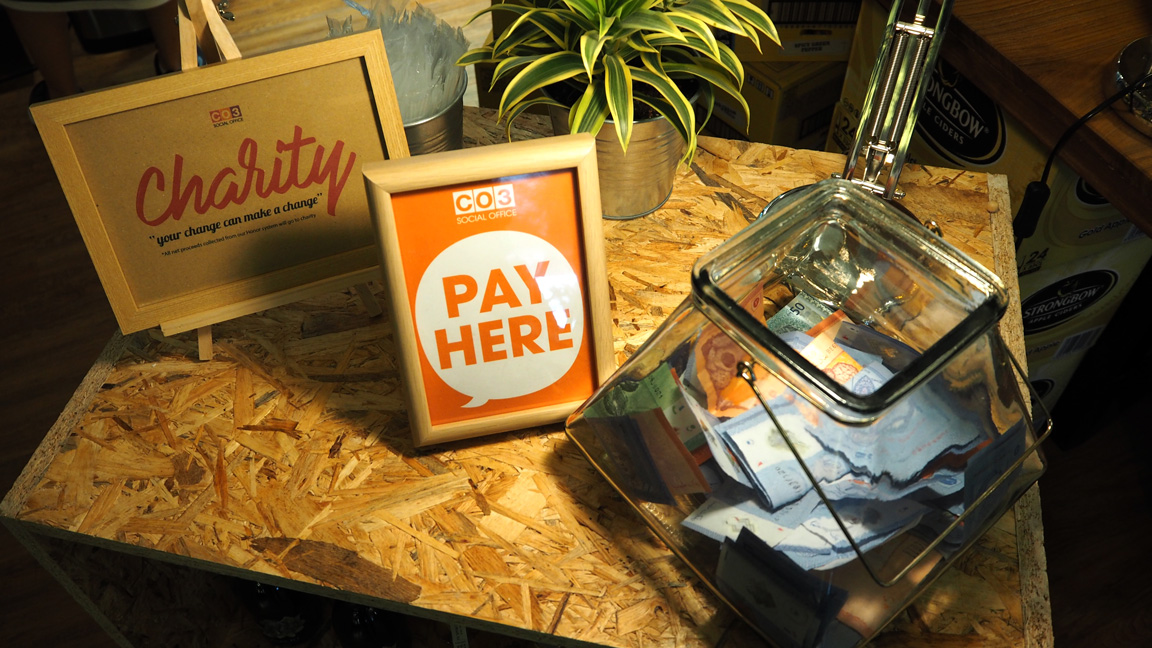
Built upon CO3’s honor system, members pay for their food and beverages without any supervision.
With millennials slowly taking over the workforce, talent attraction and retention is more challenging than ever. Hence the company is confident that augmenting the importance of human-centric “heartware” will be an alternative solution to talent retention.
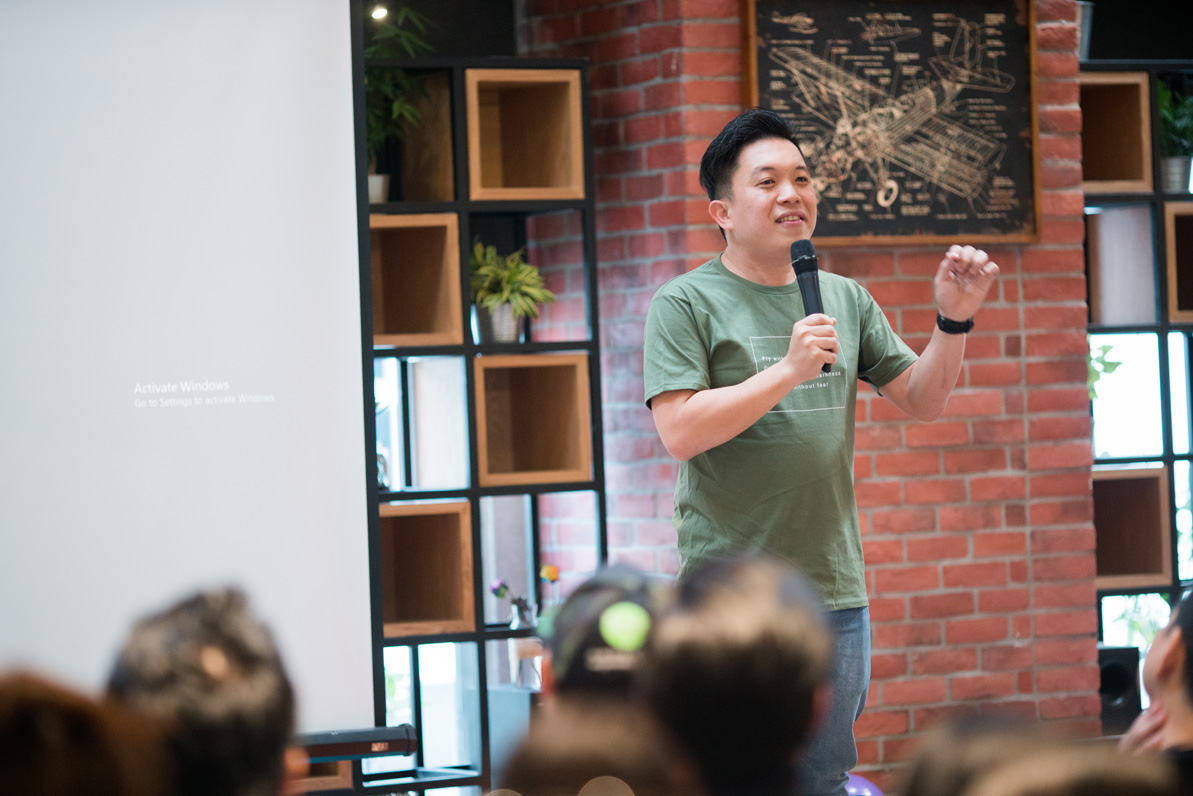
Yong giving a speech on the importance of "Heartware".
CO3 Social Office also positioned itself as a unique concept that can be implemented in existing corporate environments and real-estate locations, improving their appeal to the new generation of white collar professionals, on top of optimising the utilisation of their existing assets.
Jeff Ong, Executive Director of CO3 explained that many offices have unutilised real estates like meeting rooms or under-utilised real estates like manager rooms. Co-working space helps companies to turn these real estate cost into revenue.
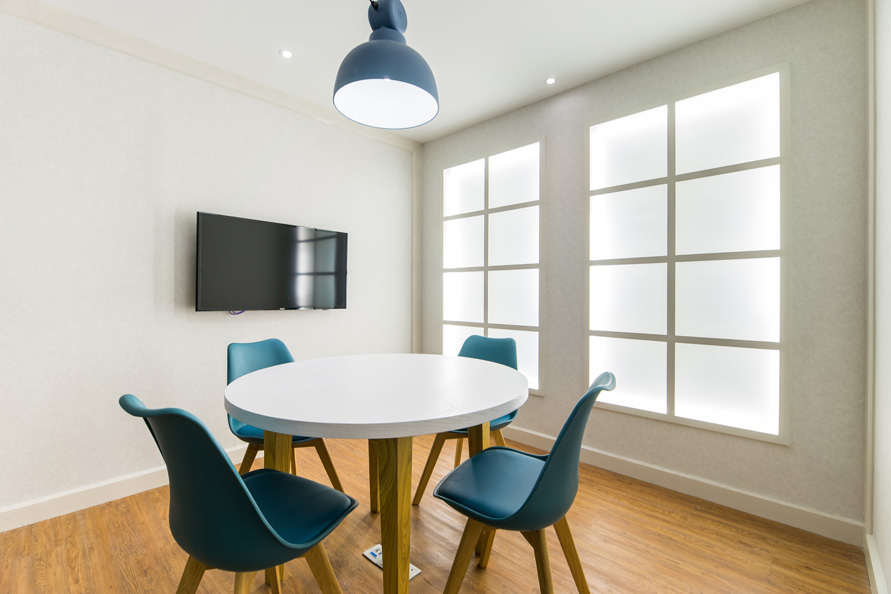
CO3 maximizes the value of real estates by having shared meeting rooms, brainstorm area, and other facilities among the members.
On the day of the launch, Yong also revealed that the 22,000 sq feet working space has achieved more than 80% occupancy, with 200 members from various professions including the legal, corporate secretary, production house, event, media, and tech startup industries. CO3 Social Office is not just the coolest office in Malaysia, but it’s also the largest of its kind in the region. Believing in the concept of constant growth, the team had planned to outdo their current accomplishment. Yong stated that this first office is built to prove the concept of co-working area in Malaysia. Ready to achieve their next goal, they are eyeing their second location which will take up 80,000 sq feet in a 5 storey building. The location is 4 times larger than its predecessor and is said to be along Jalan Semangat. When asked about the remaining 3 locations, Yong explained that scouting process is ongoing. Though the exact locations are not finalised, the team is looking to complete these locations by Q2 2018.
More shots of CO3 Social Office:
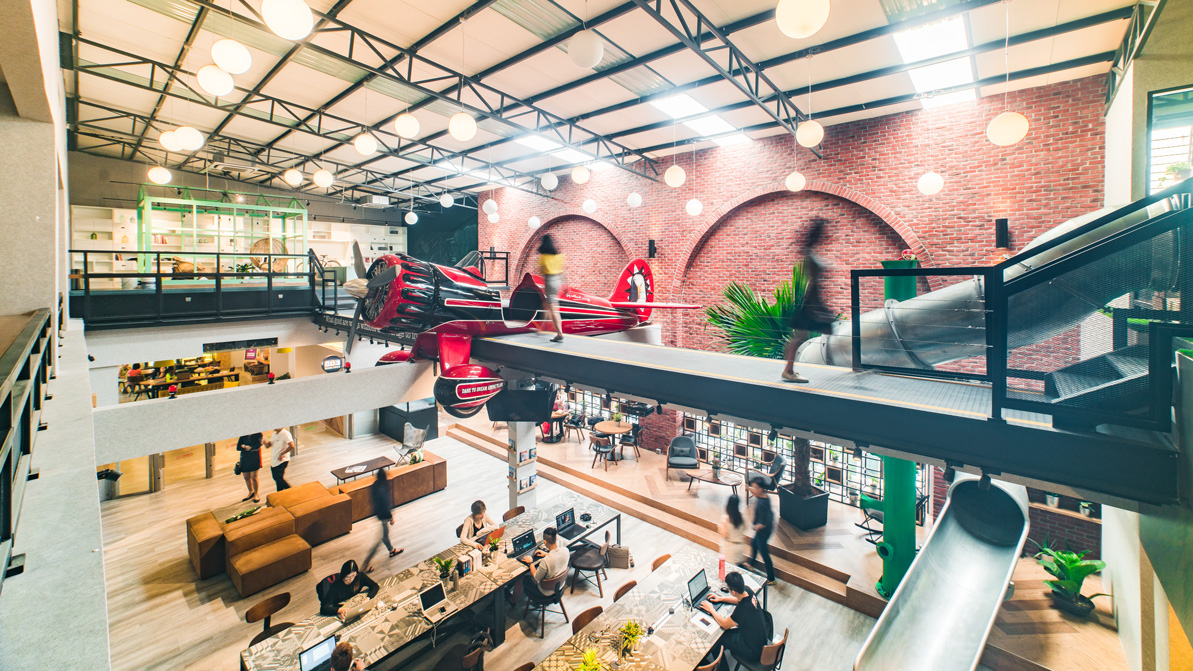
A bright red plane in the middle of the office to usher the members TO FLY.
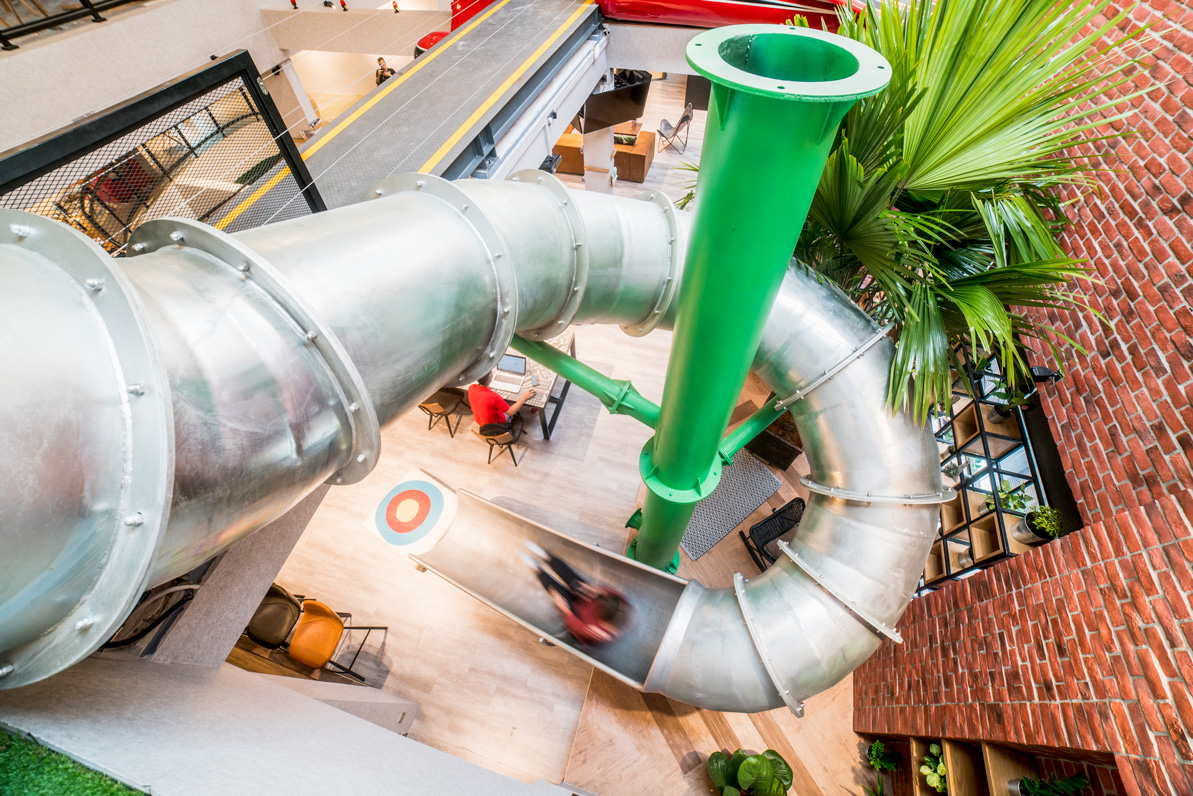
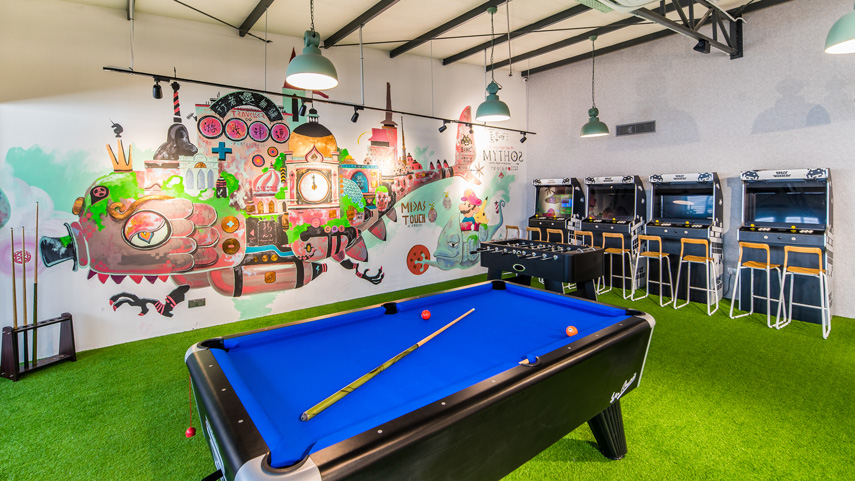
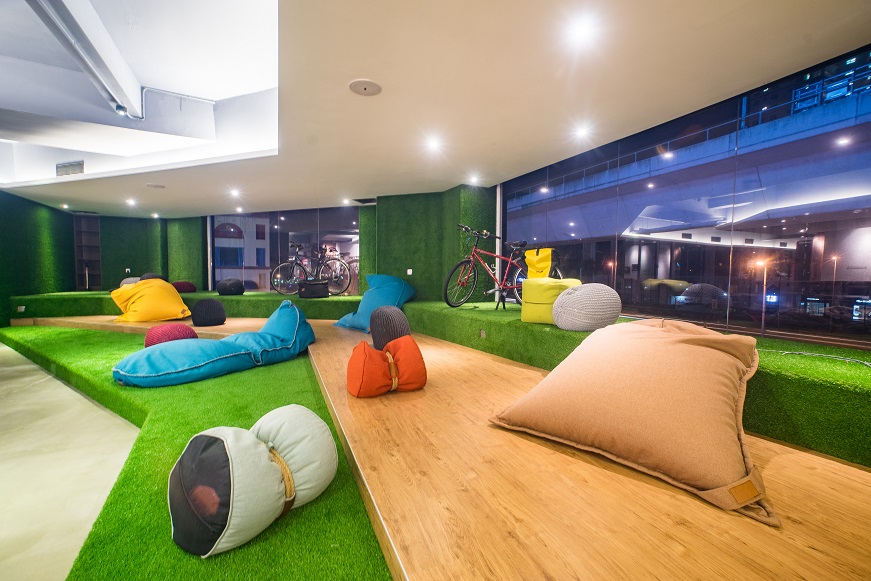
CO3 comes with an assortment of entertainment & relaxation facilites.

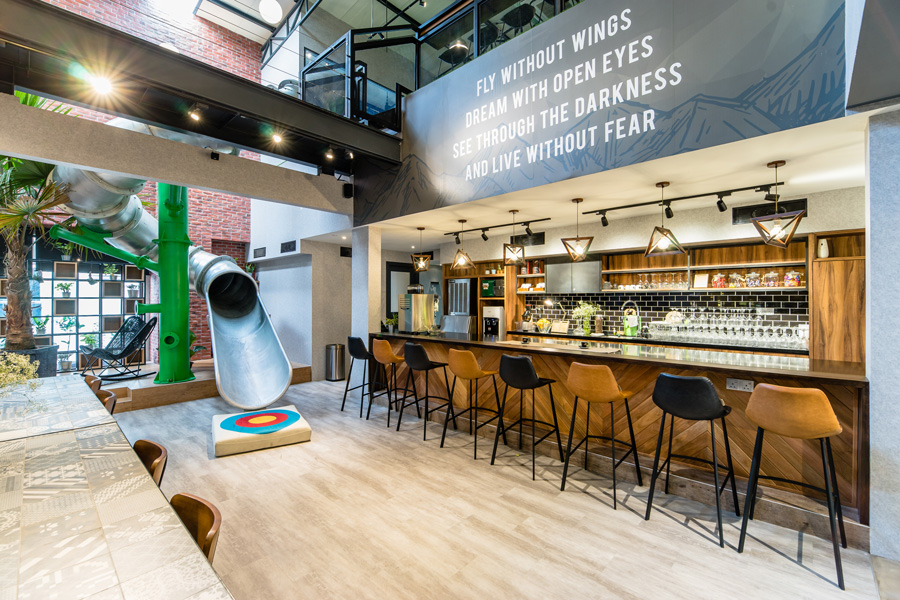
No short of good foods & beverages in the premise.
For more information, please visit http://co3.co
—————————————————-
A special report by PRWIRE Asia.
]]>
Julo raises seed round led by Skystar Capital to serve the underbanked consumers
Indonesian peer-to-peer (P2P) lending startup Julo has landed an undisclosed seed funding led by Skystar Capital, with participation from East Ventures, Convergence Ventures, and other undisclosed angel investors.
The capital will be used to accelerate financial inclusion in Indonesia, that is focusing on the 100 million underbanked people to obtain loans for their various personal use.
According to Julo’s Co-founder Adriansus Hitijahubessy, it will be primarily spent on product and business development, in addition to machines learning investments, team development and distribution.
“The idea for Julo started when I was building AI-based credit scoring solutions for emerging countries in my previous company,” said Hitijahubessy. “As successful as it was, I realized that instead of helping consumers in Latin America and African countries to gain access to credit, I should be helping people in my home country.”
Hitijahubessy also notes that Indonesia is a suitable seedbed for the fintech lending company, as the country has a large segment of the population at the base of the financial pyramid and low consumer credit liquidity equipped with information technology.
Along with Hans Sebastian and Victor Darmadi, Hitijahubessy set up Julo, a personal loan app for Android users. This allows loan applicants to apply for a small personal loan from their phones, where they are required to submit pictures of personal documents.
Successful applications can receive their loan within the next 24 hours, with a maximum permissible loan size of about US$600 and a payment period up to six months.
Besides, it is the startup’s credit scoring algorithm that allows users to manage loans, due dates, and cash back bonuses paired with alerts and reminders, which draw Skystar Capital to invest.
Edward Gunawan, the Partner of Skystar said, “We believe that having a strong credit scoring algorithm is a key differentiator for P2P lending startups. Driven by a technically strong founding team, Julo is one of the first locally grown P2P lending startups. ”
The startup generates revenue from a provision fee from borrowers and service fees from lenders. Since its launch in January 2017, Julo claims to have 50,000 app downloads and more than thousands lenders.
Julo hopes the company will reach a critical mass of 10,000 borrowers within the year, and accelerate the development of its credit scoring engine.

